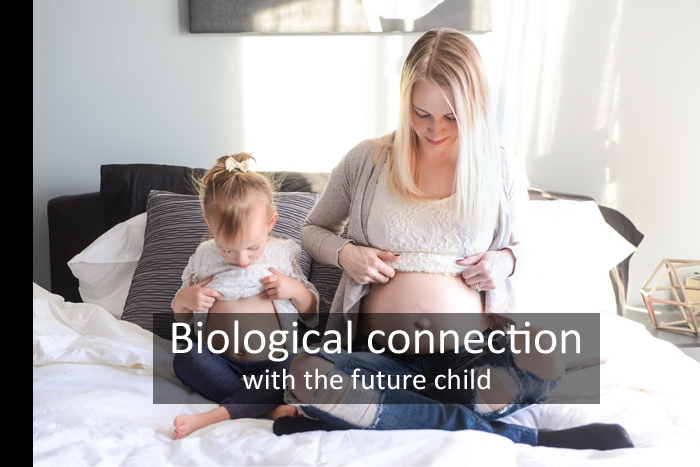For many intended parents around the world, surrogacy does come as a highly critical procedure. While many know it as a process whereby a surrogate mother carries and delivers a baby for another individual or couple, there are numerous other complications attached to it.
That said, having a biological relationship with their child is usually rather important for intended parents in their procedure. There could be several causes for it, including the child’s emotional attachment to the future parents. This blog investigates the emotional, psychological, and social aspects of this biological link in order to explain its great relevance.
Biological connection with the future child
Emotional Connection and Genetic Inheritance
The emotional link a biological relationship generates is one of the main factors intended parents value. Knowing that the child shares their genetic material helps the parents and the newborn to develop a closer emotional connection. Often beginning even before the child is born, parents invest emotionally in their child’s growth and dream their future together.

Moreover, the same biological link lets intended parents pass on their genetic inheritance. In families where there is a strong feeling of legacy and identity connected to genes, this can especially be crucial. Seeing qualities and traits—physical appearance, aptitudes, even quirks—that they have passed on to their children makes parents proud. Also, family history and ancestry are preserved in part by this genetic continuity.
Emotional Assurity and Identity
For many expected parents, having a biological link offers psychological comfort. Knowing that the child is physically theirs enables them to confirm their identity as parents. For parents who have battled infertility specifically, this might be quite important. Knowing the child’s DNA helps reduce emotions of loss or inadequacy connected with their path of infertility
Moreover, for the child, understanding their biological background might help them to define themselves. Children frequently wonder about their background and identity as they get older. Having a biological link to their parents will give definite responses and a feeling of belonging. It can also assist in knowing their genetic heritage, including any medical history perhaps pertinent to their condition.
Legal and Social Concerns
Many legal systems allow a biological relationship to expedite the approval of parental rights. Usually, there is less legal uncertainty and the procedure of establishing paternity is easier when the intending parents are biologically related to the kid. This is rather important to guarantee that the intended parents over their child have complete legal rights and obligations. Socially, a biological relationship might affect the acceptance and view of families.
Biological links are highly prized in some societies and communities, hence having a biological connection could enable intended parents to feel more accepted and integrated. The child’s social interactions may also change since, in cases of a clear and acknowledged genetic link, peers and extended relatives may find them more accepted.

Child’s Emotional Development and Well-Being
First and foremost in surrogacy agreements comes the child’s mental health and well-being. That said, understanding their biological parents and knowing their roots will help a youngster grow emotionally better. Crucially for their general well-being, a secure relationship with their parents is something it can help with. Children naturally wonder about their origin, hence knowing the biological parents helps to avoid confusion or loss of interest. Also, Healthy emotional growth depends on a family being open and trusting, hence this transparency can help to build these qualities within it.
Medical and genetic data
Another great advantage of a biological relationship is access to accurate medical and genetic data. Many medical disorders and predispositions are inherited, hence the child’s healthcare may depend much on understanding the genetic background. This data can help doctors make wise decisions regarding the child’s health and in delivering better treatment. Knowing that their child shares their genetic material might let intended parents relax about the child’s development and health. It guarantees that the child gets suitable medical attention from a young age and helps in predicting and controlling any inherited diseases.
Moral and ethical Aspects
Although there are some ethical issues in surrogacy, many intended parents believe that having a biological relationship with their kids is more morally right. It can present a clear and simple story about the child’s conception and delivery, therefore lessening any possible ethical conundrums regarding the child’s beginnings.
Moreover, some parents find it more difficult ethically to use donor gametes or adopt a child than to pursue surrogacy using their own genetic material. The biological link offers a more direct path to parenthood and can help to simplify these ethical issues.
Coping with Emotional stress
 For intended parents, the path of surrogacy can be emotionally taxing. Having a biological relationship with the child can help you find emotional support and direction all through the procedure. It can provide strength and inspiration amid the ups and downs of the surrogacy process.
For intended parents, the path of surrogacy can be emotionally taxing. Having a biological relationship with the child can help you find emotional support and direction all through the procedure. It can provide strength and inspiration amid the ups and downs of the surrogacy process.
This link can also help one manage the emotional toll and complexity of surrogacy. Knowing that the outcome will be a child who is biologically theirs might help one to find solace and strength under trying circumstances
Cultural and Societal Expectations
The value of a biological link is largely influenced by society and cultural expectations. Many civilizations place a great focus on biological parenting, hence giving birth to a child whose genetic material matches those of intended parents helps those intended parents satisfy these criteria. It can improve the acceptance of their family arrangement and help to lower societal shame.
Also, the aspirations for a biological link of potential parents can be greatly influenced by cultural views and ideals on family and parenthood. In societies where biological links are highly valued, intended parents could feel under great social pressure to raise a child who is genetically related to them.
Final words
In essence, for intended parents engaged in surrogacy, a biological relationship serves multiple purposes including emotional, psychological, social, legal, ethical, and psychological aspects. This link can improve the emotional ties between parents and their children, give psychological comfort, streamline legal procedures, and satisfy society’s expectations. It also provides essential genetic and medical knowledge that will help the child’s health and welfare.
Hence we can say that the path of surrogacy is more than just bringing a kid into the life of the intended parents; it’s about building a family that captures their values, legacy, and identity. A biological link can help people confidently and lovingly negotiate the complexity and pleasures of parenthood, offering a profoundly significant sense of continuity and belonging.


No Comments